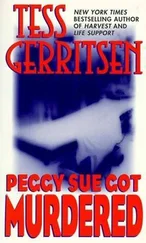“I was remembering,” said Selena, looking dreamily into her empty brandy glass, “the efficiency of Eleanor’s tax-planning. Still, perhaps I am being fanciful — let us continue.”
We had lunch in the open, under a blue canopy in the elegant avenue which leads from the beach to the vaporetto station. Afterwards, we returned across the lagoon: Graziella had instructed us on no account to miss the Historic Regatta. This is an annual pretext for the Venetians to dress up in Medieval costumes and glide along the Grand Canal under gold awnings, in barges shaped like lions and dolphins.
The pressure of the crowds gathered to watch the spectacle brought me into closer proximity with the lovely Ned than could otherwise have been achieved. This, with the heat and the wine I had drunk at lunch, induced in me a certain dizziness: I was hard put to it to refrain from any open advance.
I did consider, indeed, whether I should try fainting, as recommended by the dramatist Shakespeare. It seemed to me, however, that unless Ned felt obliged to carry me all the way back to my room at the Cytherea nothing of substance would be achieved by this. He does not seem to me the kind of young man who would readily undertake such a task.
“I don’t believe Shakespeare told Julia to try fainting,” said Cantrip. “He’s dead.”
“She is referring,” said Selena, “to his early poem ‘Venus and Adonis.’ Julia read it at an impressionable age and has since regarded it as a sort of seduction manual.”
“It is a most indelicate work,” said Ragwort. “Not at all suitable reading for a young girl.”
“It’s hardly Julia’s fault,” said Selena. “They told her at school that Shakespeare was educational.”
“As I recall,” I said, “the methods employed by the goddess in her pursuit of Adonis, though forceful, achieved only limited success. Doesn’t Julia find that discouraging?”
“No,” said Selena. “No. On this point alone, she believes that Shakespeare has been less than candid. She is persuaded, you see, that the poem is based on personal experience. The historical evidence shows that he yielded.”
We returned, therefore, in the usual way to the Cytherea — that is to say, with no one carrying anyone else. Ned went off to rest before dinner.
“Julia, honey,” said Marylou, “you must let me fix that skirt.”
At some stage of the afternoon the hem of my skirt had come down. It is in the nature of hems to come down; and Marylou is of the school of thought which holds that they should be put up again. We accordingly adjourned to her room, where she keeps her sewing things, acquiring en passant from the bar a bottle of Frascati.
We sat on the bed, drinking Frascati, she sewing and I watching her sew. She displayed a great interest in life at the English Bar, and I was happy to gratify her curiosity. I gave her, I think, a pretty fair and balanced picture. That is to say, I did not dwell exclusively on the forensic triumphs attributable to my own skill and brilliance, but mentioned also the forensic disasters brought about by the idiocy of my lay client, the incompetence of my instructing solicitor or the senile dementia of the tribunal hearing my case. It was, in short, a very similar account to what she would have got from any other member of our profession.
“Julia, honey,” she said, “I think I ought to oversew the hem of your slip.”
The lower edge of my petticoat, since its abbreviation, inevitably lacked its original smoothness. The defect was latent: but for my taking my skirt off to allow her to sew the hem, Marylou herself would not have remembered it. Still, it is curiously pleasant to watch someone engaged for one’s benefit on some delicate domestic task: with only formal protest I surrendered the petticoat.
I seem to have given her an unduly rosy picture of life at the Bar. “I wish I’d done something like that,” she said, rather wistfully. “I wish I’d done something valid and meaningful, instead of just getting married.”
I assured her that celibacy was not a prerequisite to practice at the Bar: I suggested, indeed, that a husband might prove a great comfort in those moments of stress and anxiety which are unavoidable in our profession.
“Not if the husband was Stanford, honey,” said Marylou. “Stanford is not the kind of husband who would be supportive to me in a self-actualizing role. Stanford does not care about me as an individual person.”
I said — what else could I say? — that if Stanford did not adore her he was both a fool and a scoundrel; and I could not easily believe so ill of him.
“No, honey,” said Marylou. “He adores the way I look and the way I dress and the way I keep house and the way I organize parties. He does not adore me as a person. He does not care about me as a person. If my husband cared about me as a person, he would not have come to Venice with me and then gone to Verona for the weekend to stay with a business acquaintance.”
She then burst into tears.
I was much distressed by this and did not know what to do. Still, it is common knowledge that those who weep do not wish to do so in vacuo, but on a convenient shoulder: I proffered my shoulder and Marylou wept on it. “There, there,” I said, or words to the like effect.
It will be clear to you from the foregoing that the reasons for my being on Marylou’s bed in a fairly small quantity of underwear and holding her head on my shoulder were of the most innocent nature imaginable. I do quite see, however, that it was perhaps not the best moment for Stanford, returning from Verona, to walk, without knocking, into the bedroom. The scene was open to misconstruction: from Stanford’s expression it was clear that he misconstrued.
Still, he did not, while I remained present, actually say anything. I was hopeful that by the time we all went down to dinner Marylou would have persuaded him of the absolute purity of her motives and my own. From the way Stanford looked at me over dinner, however, I fear this is not the case. I hope, as I say, that there will be no unpleasantness.
I was so put out by all this that when the Major suggested cutting a rug together some evening I was not immediately able to think of an excuse and have, in principle, agreed.
I excused myself from coffee on the grounds of a headache, seeking in the privacy of my room the consolation of reporting to you the difficulties in which this leaves me
Yours, as always, Julia.
“It does seem extraordinary,” said Ragwort, “if anyone was going to murder anyone, that no one murdered Julia. One’s glad they didn’t, of course.”
It was now very late: even the actors were leaving.
“We’d better go,” said Timothy. “Selena, do you still feel like driving me to Heathrow tomorrow?” It had been arranged, earlier in the week, that Selena should drive Timothy to the airport, arriving there in time to coincide with Julia’s return. The rest of us, thinking to spend in convivial reunion the hours between Julia’s arrival and Timothy’s departure, had intended to include ourselves among her passengers. It was agreed, in spite of the altered circumstances, that these arrangements should stand.
“I say, Ragwort,” said Cantrip. “You know what you said about no one murdering Julia — you don’t think it’s one of those mistaken identity things, do you? I mean, you don’t think someone meant to murder Julia and got the Revenue chap instead?”
I pointed out that to murder, in mistake for Julia, a thin young man with fair hair would require a peculiarly myopic assassin.
“Might have been dark,” said Cantrip. “And we don’t know whose room it happened in — the report just said ‘in hotel bedroom.’ Suppose the chap from the Revenue was in Julia’s bed—”
Читать дальше











